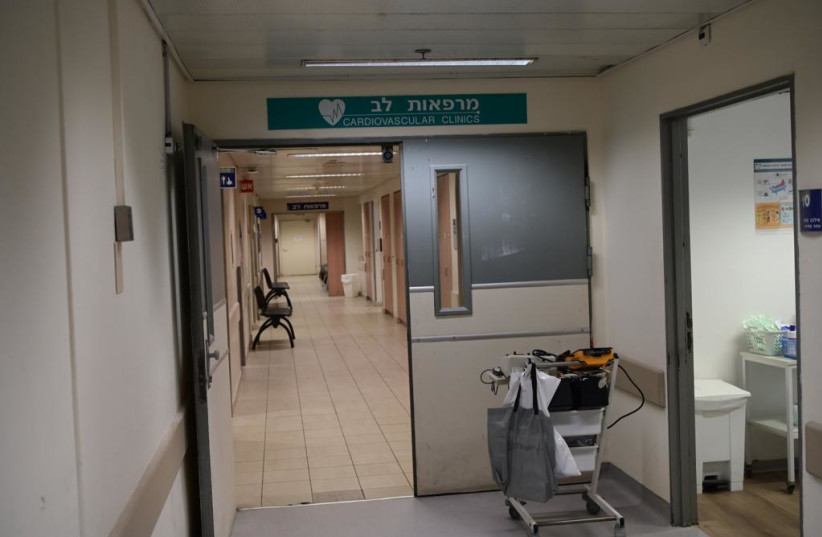All medical services, barring emergencies, will strike from 7 a.m. on Monday to 7 a.m. on Tuesday in protest against recent incidents of violence occurring in hospitals, the Israel Medical Association (IMA) announced Sunday.
They will all work on a reduced Shabbat schedule, except for emergencies or in hospitals’ departments of oncology, hematology and obstetrics and IVF and dialysis units. As usual, an exceptions committee will decide on special cases.
Last week, a pediatrician was attacked by young parents who were unwilling to wait for the release of their child from Soroka-University Medical Center in Beersheba. Then a 17-year-old patient at the Women’s Health Center of Clalit Health Services in Ramle attacked a doctor with brass knuckles and kicked him in the head. The doctor was cut in the face and received medical treatment at Shamir Medical Center in Tzrifin.
“We made it clear in advance that our sanctions at Soroka were only a warning strike, and now we have no choice but to seriously consider shutting down the entire health system so that someone in the government will wake up and put an end to this lawlessness.”
Prof. Zion Hagai
Is violence in hospitals an epidemic in Israel?
“We made it clear in advance that our sanctions at Soroka were only a warning strike, and now we have no choice but to seriously consider shutting down the entire health system so that someone in the government will wake up and put an end to this lawlessness,” IMA chairman Prof. Zion Hagai said.

“The IMA is dissatisfied with what the Health Ministry has done to protect staffers from violent patients and family members,” he added.
The previous government initiated a number of important steps in response to the IMA’s demands, including the establishment of a police presence in emergency rooms and the initiation of legislation to make the punishments more serious, but now the steps in the matter must be completed immediately, Hagai said.
“Recent cases have shown that policemen on guard in emergency rooms are not enough, and that the security systems in all medical institutions must be significantly strengthened,” he said.
“A strike is never the default for us, but the violence in the healthcare system has long since become an epidemic, and the redlines are crossed almost every day,” he added.
The decision to shut down the healthcare system was made at the end of a long discussion by the IMA secretariat last Thursday.
“We will in no way agree to a reality in which the doctors will be abandoned precisely in the place where they are engaged day and night in saving lives,” Hagai said.
The Israel Midwives Association, which represents 1,400 highly trained nurses, said cesarean sections would take place as usual on Monday, “and the midwives will wait with love and professionalism as always for the women who are about to give birth. Unfortunately, we learned nothing from the murder of the late Tova Carrero,” a nurse at a Clalit Health Services clinic who was murdered six years ago by being set afire by a crazed patient, Asher Faraj, 78, who was imprisoned.
